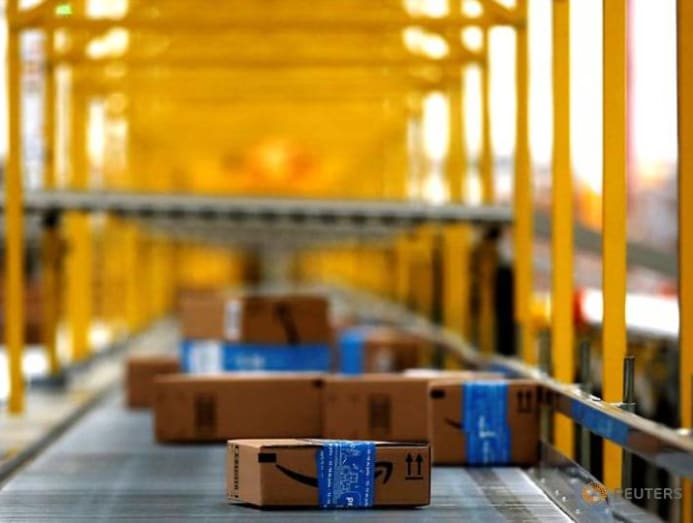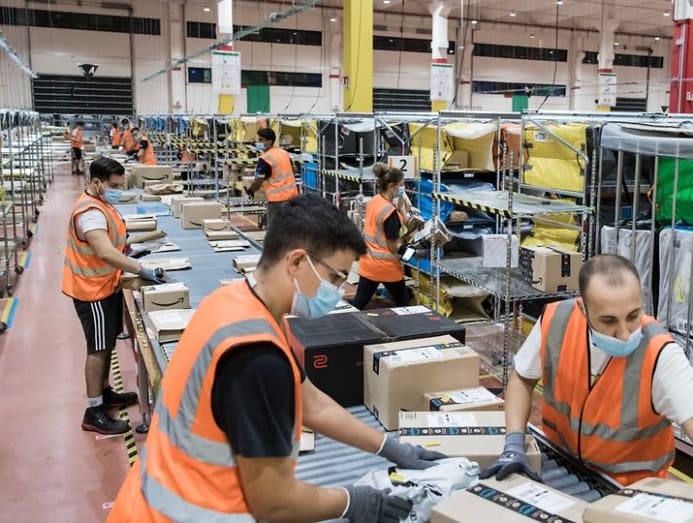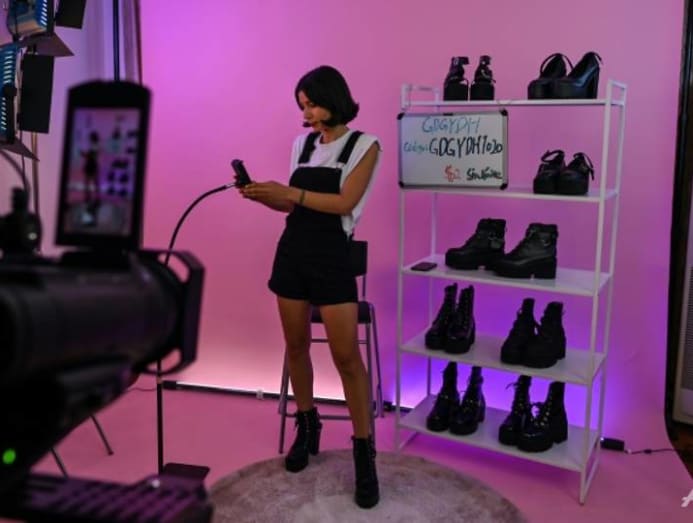Commentary: The 11.11 sale is great except for the plastic waste it generates
SINGAPORE: Retail therapy. 2 words that for the vast majority of us sum up the excitement and anticipation of walking through store aisles or scrolling through shopping apps and finding exhilaration in adding items to our cart and coming away pleased with our purchases.
Only these 2 words may as well be synonymous with 'climate crunch', judging by the harm we cause our planet via our seemingly innocent 'fingertip' shopping expenditures.
The feel-proficient factor that many of us seek through shopping, perpetuating the buy-utilise-discard bike is annihilation but therapeutic to planet earth and all its inhabitants, given the immense packaging waste and carbon footprint information technology leaves behind.
READ: Held online amongst the COVID-19 pandemic, how did the Great Singapore Auction fare this year?
The e-commerce sector has burgeoned in recent years. Targeted online sales events have further catapulted the retail culture to dizzying heights.
Singles' Day 2022 is today, a much-anticipated global shopping outcome.
I wonder if the Nanjing University students in 1993 who started this e'er imagined their lightbulb moment of using retail therapy as a style to cheer themselves up for being single – indeed to flaunt their singlehood with pride - would proceeds popularity of such monumental proportions.
CEO of Alibaba Group, Daniel Zhang cashed in on this feel-good concept in 2009 and its popularity has made such headway into our societies that, today, it is no longer associated with i's social life status to store extensively on Singles' 24-hour interval. Anybody does it.

The returns on this investment has been nothing short of staggering. 2022 Singles' Day sales on Alibaba raked in a record US$38 billion, over five times the total online sales that from the great Black Friday sales, making it look like a neighbourhood pasar malam in comparing.
Closer to home, Alibaba-owned Lazada recorded 3 million orders inside the starting time lx minutes concluding yr.
Home-grown due east-commerce platform Shopee as well saw its biggest eleven.xi event with a record-breaking 70 1000000 items sold across the region.
READ: Commentary: E-commerce is fix to nail, driven by COVID-19
11.11 spinoffs in the grade of 9.9 and 10.ten sales are making traction too, further cementing such auction events' long-term trend.
According to a report tracking online spending, Singaporeans spent an average of more than US$1,000 each on online purchases in 2018, well ahead of the global average of Usa$634.
COVID-nineteen THE GATEWAY TO ONLINE SHOPPING
With different parts of the world in various stages of an "on and off" lockdown this yr, e-commerce has gained traction even amongst people who otherwise preferred brick and mortar stores.
My foray into online grocery shopping started during the circuit breaker period. I had previously shied abroad from it considering information technology doesn't allow me to bear my own reusable numberless or to pick items with depression to minimal packaging.
But safe triumphed plastic pollution and I joined the game. Starting with groceries, then printer cartridges, followed by a desk-bound laptop table (cue work from home supplies) and I began to meet why this game was fun.
The ease and comfort it presented came close on the heels of the protection information technology offered from the worry of catching germs.
ONLINE SHOPPING: BOON AND BANE
Due east-commerce has obvious benefits. At the outset it eliminates geographical limitations and our commute time, offer convenient render and refund policies, ofttimes have meliorate deals than retail stores and provides a smorgasbord of products from which to make our purchases 24 hours a day.
We became so immersed and enthralled with this new artery of shopping that until recently, we failed to notice the gigantic piles of trash the ecommerce trades had left in their wake.
READ: Commentary: Is COVID-nineteen the terminal harbinger that breaks the Orchard Road camel's back?
The rise in online sales has resulted in an identical rise in packaging waste. According to Greenpeace, the volume of packaging waste material generated in Red china alone was estimated to be at 9.4 meg tonnes in 2022 and is projected to reach 41.iii 1000000 tonnes by 2025.
We may not see it simply while the merchandise is virtual, the waste information technology generates is very much concrete.

While shopping online, I noticed from the reviews that Singaporeans may exist oblivious to the over-packaging issue.
In fact, many buyers expressed their approving and glee for an detail packaged well. A few even complimented sellers on the usage of foam and chimera wraps.
Negative and angry feedback rained on sellers who had seemingly delivered a broken or cracked item. With 25 per cent of items bought online getting returned, and lxxx per cent of these stemming from damaged or cleaved appurtenances, it's understandable that retailers prefer 'over wrapping' items to prevent product injuries and bad reviews.
STEPPING Up EFFORTS TO TACKLE PLASTIC WASTE
The question is how can we have our cake and eat it besides?
The e-commerce giants take to take a lead in this and many are already on this path.
Amazon'due south Frustration Free Packaging is one example. It is based on a tiered certification system and involves working with manufacturers to minimise packaging.
For instance, instead of having xiii packaging components, a product tin exist packed into 9.
It also has a guideline system to make up one's mind how much packaging is needed based on what sort of fabric the products are made of – then anything accounted more than l per cent delicate will have more than packaging.
This effectively encourages retailers to pack their goods efficiently and not employ a one size fits all method.
Cainiao, Alibaba's logistics venture employs a smart packaging algorithm, which assesses purchased items by category, volume, weight and expanse, and and then gain to match the appurtenances to the most space-efficient form of packaging.
READ: Commentary: We mourn the loss of Robinsons considering it was a key slice of our childhood
This has helped them to better packaging efficiency for about 290 million packages each year and reduces the waste stemming from over-packaging by fifteen per cent.
REUSABLE, RENEWABLE AND RETURNABLE
Innovative and technological advancements can effectively address the waste matter issue by designing systems and materials based on a 3Rs packaging criteria: Reusable. Renewable. Returnable.
Provisions should be made for the placement of receptacles that can be used by customers to driblet their packaging discard, which the final mile logistics 'bridgers' tin funnel back into the organization to be re-employed and re-used for packing other products.
We besides need innovations similar the renewable mushroom packaging to become mainstream enough to stage out their cream counterparts.
This compostable packaging material is made of fungus roots and farming residues. It has a natural blended textile comparable to synthetic cream plastics like styrofoam.

Companies similar Returnity permit for packaging boxes that tin be returned to the retailer and so that the same boxes tin continue to deliver more joy to other east-shoppers.
At a consumer level, i can use a 24-60 minutes Sit down-On-It rule to resist impulse purchases. This "cooling off period" may bandage a spotlight on whether you're being led by a practical 'need-based' buy or a more than frivolous 'want-based' i.
These 24 hours tin can requite us some perspective and nudge us towards a conclusion that possibly both a wallet and an environment friendly one.
READ: Commentary: Has COVID-19 made eastward-commerce and online shopping the new normal?
Fugitive express deliveries and engaging in group buys are also responsible habits one tin can prefer to reduce packaging and carbon emissions.
Shoppers should likewise feedback to the ecommerce platform and the sellers if they think their purchases are over-wrapped and commend them if they used minimal packaging.
Private Activity CAN Aid MOVE THE NEEDLE
Online shopping in Singapore is all set to boom, growing over eight per cent annually, more than than twice the three per cent growth for total consumer spending. The pandemic is just accelerating this expansion.
Authorities regulation and business processes are paramount in effecting timely change.
Robust ecommerce laws and guidelines are urgently needed to stem packaging waste matter and aid pockets of innovative ideas become mainstream.
But gild has a role likewise. We have to start by looking at our own consumption.

1 could contend that our myopic materialism has become so entrenched that our temporary joys have taken precedence over the bear on our purchase decisions have on our environment.
To combat this, nosotros need to think of designing a circular and airtight loop organization for dealing with waste generated by the e-commerce industry.
Retail therapy works. Nobody can deny the science backside information technology. But such joys are by very nature, brusk-lived, beingness at their core, a mere distraction and motivation tool.
Slow down. Unwind. Walk barefoot on grass. Volunteer. Brand friends. Single or not, let us as a society opt for therapies that are sustainable too.
Aarti Giri is founder of the local environmental group, Plastic-Lite Singapore that encourages reduced dependence on plastics and advocates the adoption of an environmentally conscious lifestyle with lower consumption trends.
Source: https://cnalifestyle.channelnewsasia.com/commentary/commentary-1111-sale-great-except-plastic-waste-it-generates-295271
0 Response to "Commentary: The 11.11 sale is great except for the plastic waste it generates"
Post a Comment